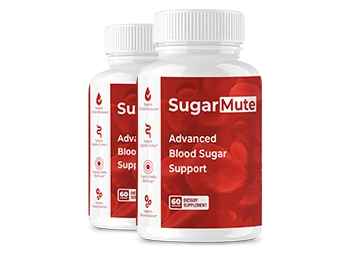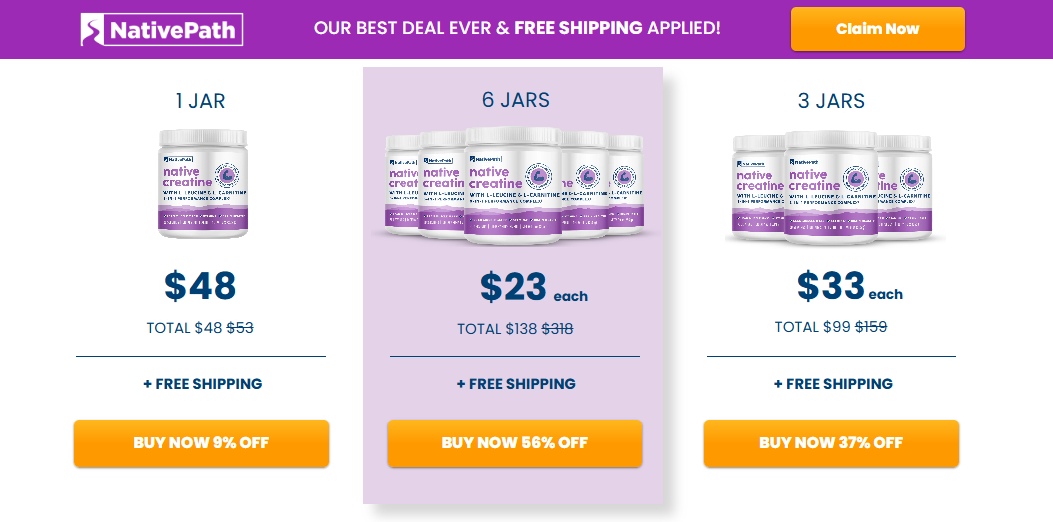Introduction
Berberine is a bioactive compound found in several plants, including Berberis species, Goldenseal (Hydrastis canadensis), and Oregon grape (Mahonia aquifolium). It has been used in traditional Chinese and Ayurvedic medicine for centuries to treat infections, digestive issues, and metabolic disorders. More recently, scientific research has highlighted its potential benefits for managing diabetes, cardiovascular health, and weight loss. However, as with any supplement, berberine has both advantages and disadvantages. This article delves into its mechanisms, benefits, drawbacks, and potential side effects to provide a well-rounded perspective.
How Berberine Works
Berberine exerts its effects primarily by activating an enzyme called AMP-activated protein kinase (AMPK), often referred to as the “metabolic master switch.” This enzyme plays a crucial role in regulating metabolism, including glucose uptake, lipid metabolism, and mitochondrial function. Berberine Benefits also influences gut microbiota, modulates inflammation, and has antimicrobial properties.
Benefits of Berberine?
Berberine is a powerful natural compound with numerous health benefits, backed by scientific research. Here are some of its most notable advantages:
1. Supports Blood Sugar Control
- Helps lower blood glucose levels by improving insulin sensitivity.
- Works similarly to metformin, a common diabetes drug.
- Reduces HbA1c levels, which is a long-term marker of blood sugar control.
2. Aids in Weight Loss and Metabolism
- Activates AMPK, the “metabolic master switch,” helping to burn fat.
- Reduces body weight and BMI without major dietary changes.
- Improves gut bacteria, which plays a role in metabolism and digestion.
3. Lowers Cholesterol and Improves Heart Health
- Decreases LDL (“bad” cholesterol) and triglycerides while increasing HDL (“good” cholesterol).
- Reduces inflammation and oxidative stress, lowering the risk of heart disease.
- Helps regulate blood pressure and improve overall cardiovascular function.
4. Has Antimicrobial and Anti-inflammatory Properties
- Acts as a natural antibiotic, fighting bacteria, viruses, fungi, and parasites.
- Helps with infections like SIBO (Small Intestinal Bacterial Overgrowth).
- Reduces inflammation, benefiting conditions like arthritis and autoimmune disorders.
5. Supports Gut Health
- Balances the gut microbiome, promoting healthy digestion.
- May alleviate symptoms of IBS (Irritable Bowel Syndrome) and leaky gut syndrome.
6. May Protect Against Neurodegenerative Diseases
- Supports brain health by reducing oxidative stress and inflammation.
- May help protect against Alzheimer’s and Parkinson’s disease.
- Enhances cognitive function and memory.
7. Helps with Polycystic Ovary Syndrome (PCOS)
- Improves insulin resistance, a key factor in PCOS.
- Helps regulate menstrual cycles and improve fertility.
- Aids in hormonal balance and weight management.
8. May Have Anti-Cancer Properties
- Early research suggests berberine may inhibit tumor growth in certain types of cancer.
- Works by suppressing cancer cell proliferation and inducing apoptosis (cell death).
9. Supports Liver Function
- Helps reduce fatty liver disease by improving lipid metabolism.
- Protects the liver from oxidative damage and inflammation.
10. Improves Overall Longevity
- Activates AMPK, which is linked to increased lifespan.
- Reduces age-related inflammation and oxidative stress.
Ingredients of Berberine Supplements
Berberine is a natural alkaloid extracted from various plants, but commercial supplements may contain additional ingredients to improve absorption and stability. Below are the key ingredients commonly found in berberine supplements:
1. Active Ingredient: Berberine Extract
- Typically sourced from plants such as:
- Berberis aristata (Tree Turmeric)
- Berberis vulgaris (Barberry)
- Hydrastis canadensis (Goldenseal)
- Mahonia aquifolium (Oregon Grape)
- Standardized to berberine HCl (Hydrochloride) for better bioavailability.
2. Additional Ingredients (Depending on the Brand):
Absorption Enhancers:
- Milk Thistle Extract (Silymarin): May improve bioavailability.
- Black Pepper Extract (Piperine or BioPerine): Enhances absorption and effectiveness.
Capsule Ingredients:
- Vegetable Cellulose (Plant-Based Capsules): Common in vegan/vegetarian supplements.
- Gelatin (Animal-Based Capsules): Used in non-vegan options.
- Silicon Dioxide: Prevents clumping and enhances stability.
- Magnesium Stearate: Acts as a flow agent in manufacturing.
Optional Ingredients:
- Turmeric or Curcumin: Added for anti-inflammatory benefits.
- Alpha Lipoic Acid (ALA): Often combined for blood sugar control.
- Cinnamon Extract: Enhances metabolic benefits.
What to Look for in a Quality Berberine Supplement:
✔ Standardized to 97%+ berberine HCl for potency.
✔ No artificial fillers, colors, or preservatives.
✔ Third-party tested for purity and quality.
✔ Contains absorption enhancers (like piperine or milk thistle) if needed.
Would you like recommendations on the best berberine supplements with high-quality ingredients?

Pros and Cons of Berberine
1. Supports Blood Sugar Control
One of the most well-researched benefits of berberine is its ability to lower blood glucose levels. Studies have shown that berberine is as effective as metformin, a common diabetes medication, in reducing fasting blood sugar and hemoglobin A1c (HbA1c) levels. It achieves this by increasing insulin sensitivity, enhancing glucose uptake in cells, and reducing glucose production in the liver.
2. Promotes Weight Loss and Metabolic Health
Berberine has been linked to improved weight management. Research indicates that it helps reduce body weight and body mass index (BMI) by enhancing fat metabolism and inhibiting fat accumulation. Additionally, its influence on gut microbiota contributes to better digestion and metabolism.
3. Lowers Cholesterol and Improves Heart Health
Several studies suggest that berberine can lower total cholesterol, LDL (“bad”) cholesterol, and triglycerides while increasing HDL (“good”) cholesterol. It also helps reduce inflammation and oxidative stress, contributing to cardiovascular health and potentially lowering the risk of heart disease.
4. Antimicrobial and Anti-inflammatory Properties
Berberine has been traditionally used to fight infections due to its strong antimicrobial effects against bacteria, viruses, fungi, and parasites. It also possesses anti-inflammatory properties, which may help with conditions such as inflammatory bowel disease (IBD) and arthritis.
5. Supports Gut Health
Berberine positively affects gut microbiota by increasing beneficial bacteria while inhibiting harmful pathogens. This can improve digestion, reduce bloating, and help manage conditions like small intestinal bacterial overgrowth (SIBO) and irritable bowel syndrome (IBS).
6. Potential Benefits for Neurodegenerative Diseases
Emerging research suggests that berberine may have neuroprotective effects, potentially reducing the risk of Alzheimer’s and Parkinson’s diseases. It may help by decreasing oxidative stress, reducing inflammation, and promoting healthy brain function.
7. May Help with Polycystic Ovary Syndrome (PCOS)
Women with PCOS often experience insulin resistance, weight gain, and hormonal imbalances. Berberine has been found to improve insulin sensitivity, regulate menstrual cycles, and support weight loss, making it a promising supplement for PCOS management.
Cons of Berberine
1. Gastrointestinal Side Effects
A common drawback of berberine supplementation is digestive discomfort. Some users experience nausea, diarrhea, constipation, or bloating, especially at higher doses.
2. Interaction with Medications
Berberine may interact with several medications, including:
- Diabetes medications: It may enhance the effects of metformin or insulin, potentially leading to dangerously low blood sugar levels.
- Blood pressure medications: Berberine may lower blood pressure, increasing the risk of hypotension.
- Antibiotics: It has antimicrobial properties, which could alter the effectiveness of certain antibiotics.
- Cyclosporine and other drugs metabolized by the liver: Berberine can affect liver enzymes that metabolize medications, altering their efficacy.
3. Not Suitable for Pregnant or Breastfeeding Women
There is limited research on the safety of berberine for pregnant or breastfeeding women. Some animal studies suggest it could affect fetal development, so it is generally not recommended during pregnancy.
4. Possible Liver and Kidney Strain
High doses or long-term use of berberine may put strain on the liver and kidneys. Individuals with pre-existing liver or kidney conditions should consult a healthcare provider before using berberine.
5. Potential for Drug Resistance
Because berberine has antimicrobial properties, long-term use may contribute to bacterial resistance. This could make certain infections harder to treat over time.
6. Short Half-Life Requires Frequent Dosing
Berberine has a short half-life (about 3-4 hours), meaning it requires multiple doses per day (typically 900-1500 mg divided into three doses) for optimal effectiveness.
How to Take Berberine Safely
To minimize side effects and maximize benefits, consider the following guidelines:
- Start with a lower dose (e.g., 300 mg per day) and gradually increase.
- Take with food to reduce gastrointestinal discomfort.
- Use in cycles (e.g., 8 weeks on, 2-4 weeks off) to prevent tolerance and potential side effects.
- Monitor blood sugar and cholesterol levels if taking for metabolic health.
- Consult a healthcare provider if taking medications or managing a chronic condition.
Conclusion
Berberine is a powerful natural compound with a range of health benefits, including blood sugar control, weight management, heart health, and antimicrobial properties. However, it is not without its downsides. Potential side effects, drug interactions, and concerns over long-term use should be considered before starting supplementation. If used correctly and under medical supervision, berberine can be a valuable tool for improving overall health. Always consult a healthcare provider before incorporating berberine into your regimen, especially if you have underlying health conditions or take medications.






Leave a Reply